Types of Small Parrots
Updated on 05/26/24
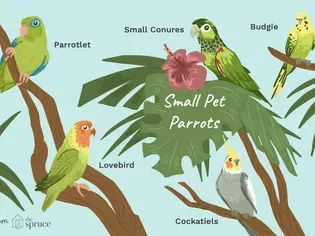
Discover the Enchanting World of Small Parrots: A Comprehensive Guide to Their Species, Care, and Companionship
Introduction
In the avian kingdom, small parrots captivate with their vibrant plumage, playful antics, and a remarkable ability to form profound bonds with their human companions. These miniature marvels, often referred to as pocket parrots, come in a staggering array of species, each with its unique charm and characteristics.
Embarking on a journey into the world of small parrots can be an enthralling experience for aspiring bird enthusiasts and seasoned aviculturists alike. Whether you are considering adopting a feathered friend or simply want to expand your knowledge about these fascinating creatures, this comprehensive guide will serve as an invaluable resource.
Types of Small Parrots: A Bird's-Eye View
The realm of small parrots encompasses a kaleidoscope of species, each boasting its own distinctive features, temperament, and care requirements.
Budgerigars: The Iconic Australian Charmers
* Appearance: Budgerigars, more commonly known as budgies, are the most popular small parrot species worldwide. These petite birds, originating from the arid regions of Australia, showcase a magnificent array of colors, from vibrant greens and blues to dazzling yellows and whites.
* Temperament: Budgies are renowned for their friendly, playful nature. They are social creatures that thrive in pairs or small flocks, engaging in lively chatter and playful interactions.
* Care: Budgies are relatively low-maintenance pets, requiring a spacious cage with plenty of perches, toys, and a balanced diet consisting of seeds, pellets, and fresh fruits and vegetables.
Cockatiels: The Whistling Melodists
* Appearance: Cockatiels are slightly larger than budgies, with their most striking feature being their elegant topknot or crest. They come in a variety of colors, including gray, white, pied, and the popular lutino (yellow) mutation.
* Temperament: Cockatiels are gentle, affectionate birds that enjoy interacting with their human companions. They are known for their melodious whistling abilities, often mimicking sounds and even human speech.
* Care: Cockatiels require a spacious cage with ample room for climbing and flying. They also benefit from regular interaction and mental stimulation through toys and training.
Lovebirds: The Endearing Devoted Duos
* Appearance: Lovebirds are petite parrots, typically ranging from 5 to 6 inches in length. They come in a variety of vibrant colors, including green, blue, yellow, and peach.
* Temperament: As their name suggests, lovebirds are deeply affectionate and form strong pair bonds. They are playful and curious, often engaging in adorable courtship rituals and bonding behaviors.
* Care: Lovebirds thrive in pairs and require a cage with adequate space for both birds to move around and interact. They have specific dietary needs, including a high-quality seed mix, pellets, and fresh fruits and vegetables.
Parrotlets: The Tiny Jewels
* Appearance: Parrotlets are the smallest parrot species, measuring just around 5 inches in length. They are adorned with vibrant plumage, often exhibiting a combination of green, blue, and yellow feathers.
* Temperament: Parrotlets are spunky, energetic birds with playful personalities. They are highly intelligent and can be trained to perform tricks and even learn basic vocabulary.
* Care: Parrotlets require a cage with ample space for climbing and exploring. They have a high metabolism and need a balanced diet consisting of seeds, pellets, and fresh produce.
Selecting the Perfect Small Parrot for Your Lifestyle
Choosing the right small parrot species for your lifestyle is crucial to ensuring a harmonious and fulfilling companionship. Consider factors such as your available space, time commitment, and personal preferences.
* For Beginners: Budgerigars and cockatiels are excellent choices for novice bird owners due to their friendly nature, low-maintenance care, and adaptability.
* For Active Families: Parrotlets and lovebirds are more energetic and playful, making them suitable for families with children who can engage with the birds' antics.
* For Those Seeking a Talkative Companion: Cockatiels are known for their vocal abilities and can learn to mimic sounds and words, providing an interactive and entertaining experience.
Essential Care for Small Parrots: A Comprehensive Guide
Providing proper care for your small parrot is paramount to ensuring its health, well-being, and longevity.
Nutrition:
* A balanced diet is crucial. Provide a high-quality seed mix, formulated specifically for small parrots, as the base of their diet.
* Supplement with pellets, which offer a concentrated source of vitamins, minerals, and essential nutrients.
* Offer fresh fruits and vegetables daily, such as apples, bananas, carrots, and leafy greens.
Housing:
* Invest in a spacious cage that provides ample room for your bird to move around, climb, and spread its wings.
* Ensure the cage has multiple perches of varying heights and diameters to accommodate the bird's foot size and comfort.
* Provide toys for mental stimulation and enrichment, such as foraging toys, bells, and mirrors.
Socialization and Training:
* Socialization is essential for small parrots' well-being. Provide regular interaction, handling, and positive reinforcement.
* Training can be a fun and rewarding experience. Begin with basic commands, such as "step up" and "come," using treats as incentives.
Health and Veterinary Care:
* Regular veterinary checkups are crucial for monitoring your bird's health and detecting any potential issues early on.
* Watch for signs of illness, such as lethargy, changes in appetite, or discharge from the eyes or beak.
* Establish a relationship with an avian veterinarian who specializes in parrot care.
Conclusion
The world of small parrots is a captivating one, filled with a kaleidoscope of species, each with its own unique charm and characteristics. By selecting the right bird for your lifestyle and providing optimal care, you can embark on a fulfilling journey of companionship, joy, and unforgettable memories with your feathered friend.
Explore More Pets

Small Bird Breeds
Gloster Canary: Bird Species Profile

Small Bird Breeds
Java Finch: Bird Species Profile

Small Bird Breeds
Zebra Finch (Chestnut-Eared Finch): Bird Species Profile
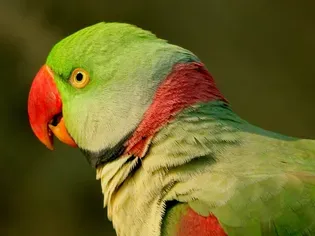
Small Bird Breeds
Alexandrine Parakeet: Species Characteristics & Care
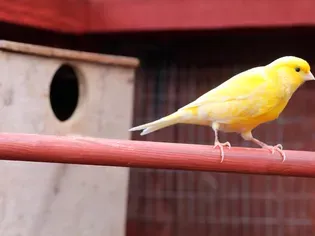
Small Bird Breeds
Canary: Bird Species Profile
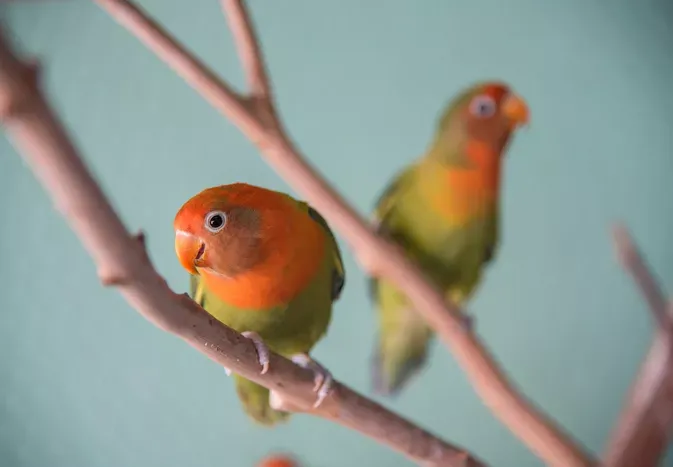
Small Bird Breeds
Lovebird (Pocket Parrot) Species Profile
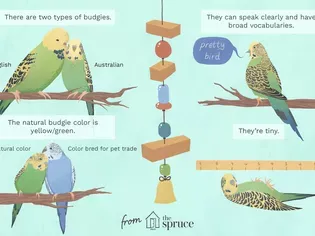
Small Bird Breeds
A Guide to Pet Budgie Birds
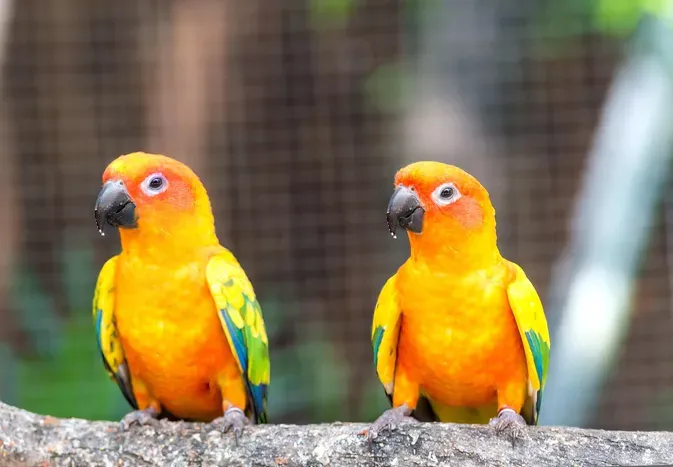
Medium Birds Breeds
Sun Conure: Bird Species Profile
